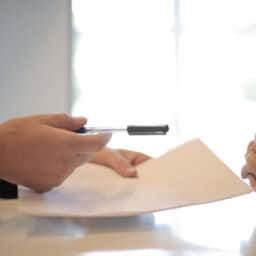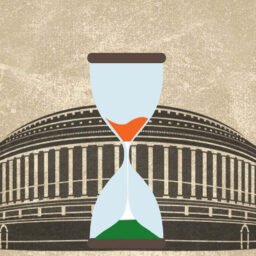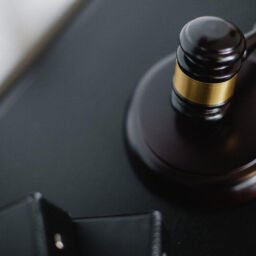INTRODUCTION
No other profession than law has so much influence on human life as it not only affects the individual but a society as whole. For centuries, this profession has been regarded glorious or outstanding profession worldwide. The code of professional ethics is the most prestigious legacy of the Bar Association.
Chief Justice Marshall has observed in this respect, “The fundamental aim of legal ethics is to maintain the honour and dignity of the law profession to secure a spirit of friendly co-operation between the bench and bar in the promotion of higher standard of justice, to establish honourable and fair dealings of the counsel with his client, opponent and witness, to establish a spirit of brotherhood with bar itself and to secure that lawyers discharge their responsibilities to the community generally”.[1]
The rules of legal ethics which a lawyer is expected to follow is written in Chapter II, Part VI of the Bar Council of India Rules and is placed under section 49(1)(c) of the Advocates Act, 1961. Some of the legal ethics which a lawyer is expected to follow are that he should maintain dignity of the court, appear in proper dress code, upload interest of the client as well keep the client information confidential.[2]
ETHICAL SHIFT IN LEGAL FUNCTIONING: AN ANALYSIS OF NEW NORMAL
With the onset of COVID-19 global pandemic, it was observed that there existed a need to shift to the digital mode of hearing in order to minimise or to an extent eliminate the spread through physical hearing. With opting for such mode of court hearing, there was witnessed a series of shift and complications observed in the ethical code of conduct of the legal professionals, which posed an area of concern, requiring a thorough contemplation.
One of the most important ethics which a lawyer is always expected to follow is the dress code. The dress code of lawyer in India is regulated by the Indian Bar Council regulations under the Advocate act, 1961 where all the lawyers are required to wear a white shirt and a black dress or coat with a white collar.[3] A lawyer should not wear bandages or dresses in public places other than the court except in special cases and in places determined by Indian Bar Association or by the courts. But in the era of Covid we are witnessing something opposite of this. There have been many instances where the lawyers have gone against the dress code ethics and one of the examples is when during the video conferencing a lawyer was seen appearing for the hearing wearing a vest. Justice Sanjeev Prakash Sharma said “Even in the video- conferencing, the decorum of the court is required to be maintained. The Advocates Act provides for lawyers to wear their uniform while pleading the case for their clients,”.[4] Lawyers are failing to abide by the ethics while working from home. This new normal is impacting the professionalism not in a good way. a throughout functioning regime but is a mere adaptation to the environmental shift being observed. Ethics playing a sacrosanct role in the functioning of the lawyers is determined by such miniscule details, which play a crucial role in the courtroom conversation, therefore adherence to the same is crucial.
Another ethics which is being impacted by the shift from physical to virtual world is the ethics of confidentiality. Lawyers must follow the confidentiality rules of their clients. Lawyers should noy advertise work, directly or indirectly, in newsletter, personal communication, interviews, giving to influencing newspaper comments or by submitting photographs. Lawyers should not disclose correspondence from the client without the client’s prior consent. But working from home make confidentiality of the client more vulnerable. Working from office has a different setup which gives a lawyer a privacy to maintain the continentality while sometimes working from home fail to do so. Working from home invites the risk of disclosing the client’s information in front of family members. Even shifting to zoom calls can sometimes give the access to third party. Another thing to worry about is the increase in cybercrime. Hackers always tries to find the loophole in unsecured network. There main target is hacking the mails and sites where the lawyers store their client’s confidential information. So, it becomes very important for the lawyers to be very cautious while working from home. Working remotely from home break the rules of professional conduct in a typical office environment.
With the problems being associated to conduct being stated above there exist one primary area of concern, upon which the entire system of legal functioning relies on, which is the technology shift. With the legal professionals practicing in the courts spread throughout the nation, find themselves under the pressing lapse in the knowledge of digital communication making them in capacitive to certain extent in the virtual mode of court proceedings. A lawyer is expected to prepare his client and his supporting witness in the court of law and mediation. They have the sole responsibility to handle the communication. In addition to the same, there exist the problem of preparation of the client and the witnesses for the hearing. With physical interaction providing a certain level of independence of mode of communication, the digital mode of client-lawyer communication faces the same level of difficulty, leading to the client and the witnesses being produced before the court in a manner violative of the code of conduct.
CONCLUSION
From a very long time, attending court in person was considered the ideal way to conduct hearing but the onset of Covid 19 pandemic, it has been observed that there exist a change in the legal practices to such an extent. We need to innovate and adapt to the actual situation we face. In the process of pursuing innovation, we need to be aware of our existing moral and professional obligations as lawyers, but at the same time we must also be aware of new obligations arising from changes in the legal environment. Workshop should be organised by the administration in order to learn the specifics of the applications and online hearing. Since, there exist no alternative recourse for the client- lawyer interaction, the communication manner of the lawyer should be altered in a manner, which highlights a humanitarian and moral approach. Despite this unprecedented situation, lawyers must consider that protecting the legal ethics and abiding by it is the main goal of lawyers and will remain so during the Covid-19. Lawyers must try to reach to the highest ethical standard otherwise they may be subject to disciplinary action.
Author(s) Name: Riya Singh (Student, NMIMS, Bangalore)
[1] Justice F.M. Ibrahim Kalifulla, “Legal Profession: Challenges and Prospects and The Art of Advocacy”, Tamil Nadu State Judicial Academy (2013)
[2] Advocates Act 1961, s 1(c)
[3] Advocates Act 1961, s 1(gg)
[4] Mohammed Iqbal, ‘Rajasthan High Court judge rebukes lawyer after he appears in vest for hearing on video- conference’ (Jaipur 25 April 2020)
















